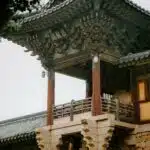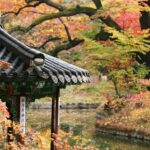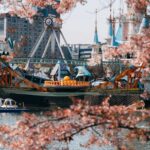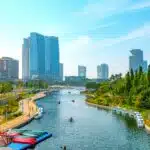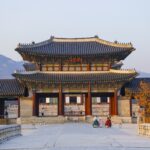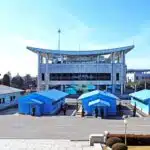Jeonju, located in southwestern South Korea, is a city renowned for its rich cultural heritage, culinary delights, and traditional Hanok village. As a significant center during the Joseon Dynasty (1392-1897), Jeonju preserves its historical charm with well-preserved architecture and cultural traditions.
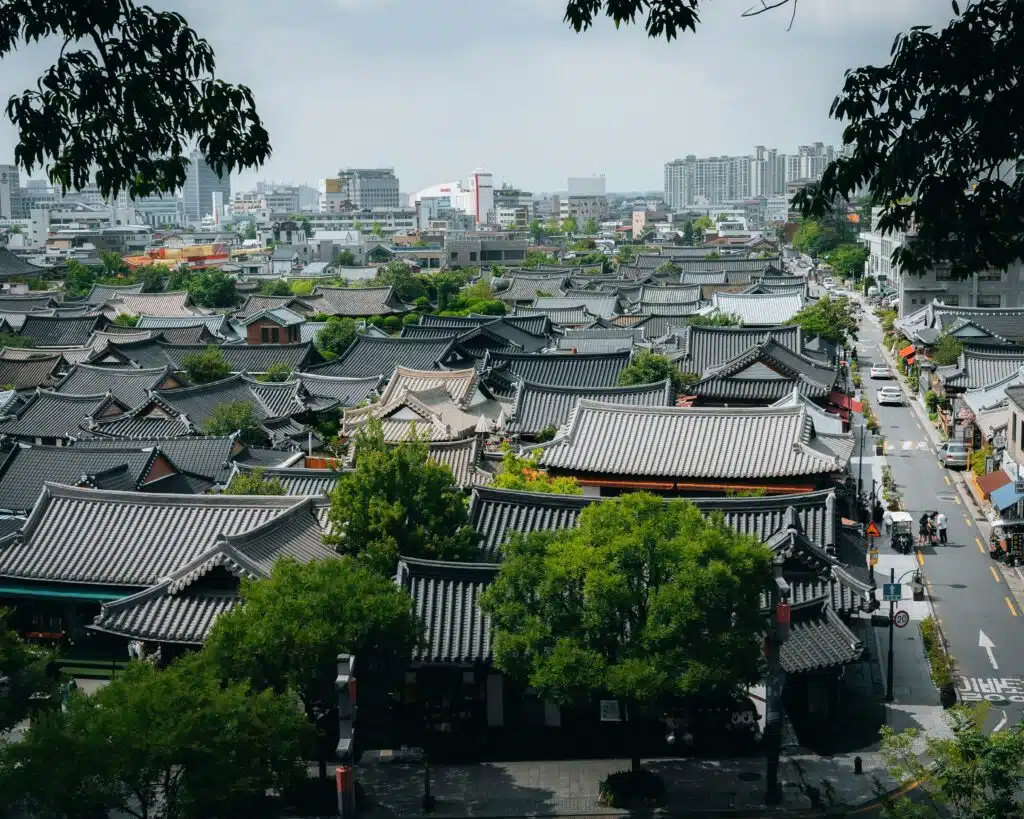
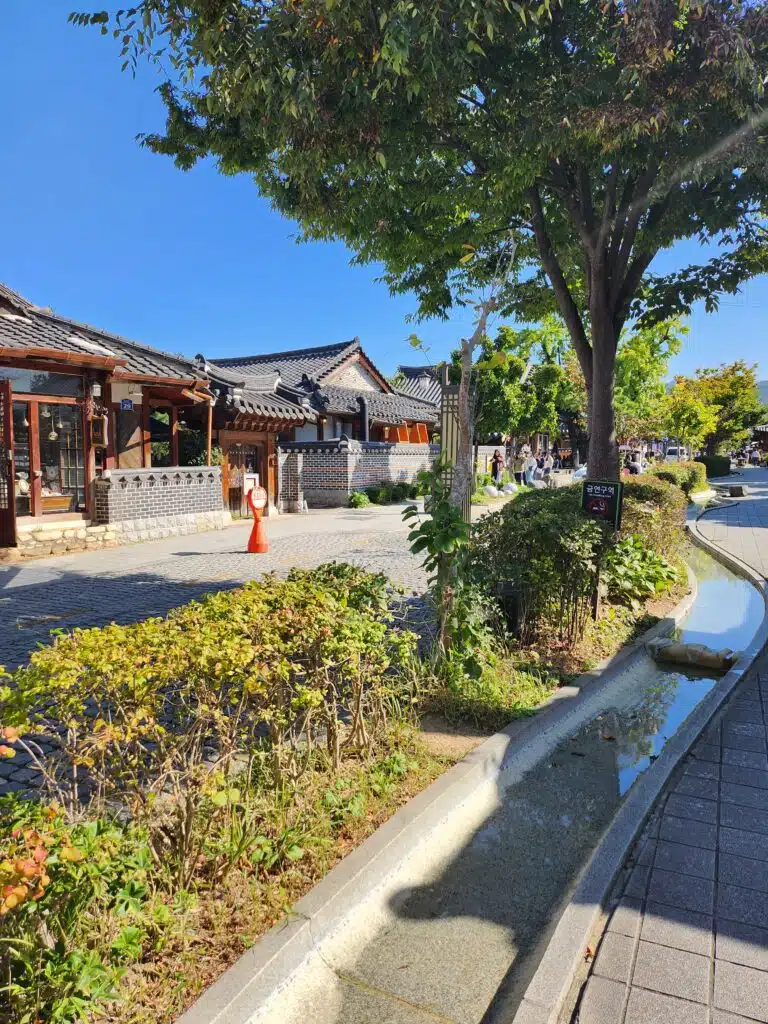
Highlights of Jeonju
Jeonju Hanok Village: A designated UNESCO Creative City, this area features hundreds of traditional Korean houses (hanok), housing craft shops, galleries, and guesthouses. It’s a cultural hub where visitors can experience traditional Korean lifestyles and arts.
Hanok refers to traditional Korean houses characterized by their unique architectural style and use of natural materials. These houses are designed to harmonize with the natural environment and incorporate elements such as wooden structures, tiled roofs, and heated floors called ondol. Hanok typically feature a central courtyard, called madang, which serves as a multifunctional space for family gatherings, ceremonies, and everyday activities. Sleeping in a hanok in Jeonju offers a unique cultural experience where visitors can immerse themselves in traditional Korean architecture and lifestyle
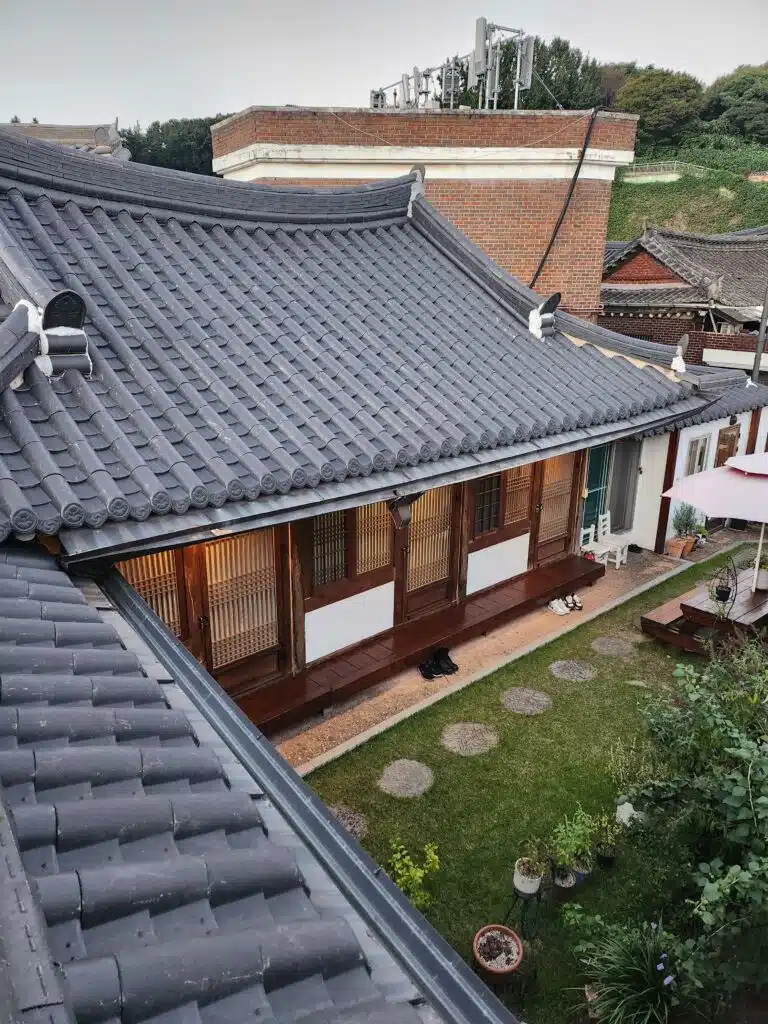
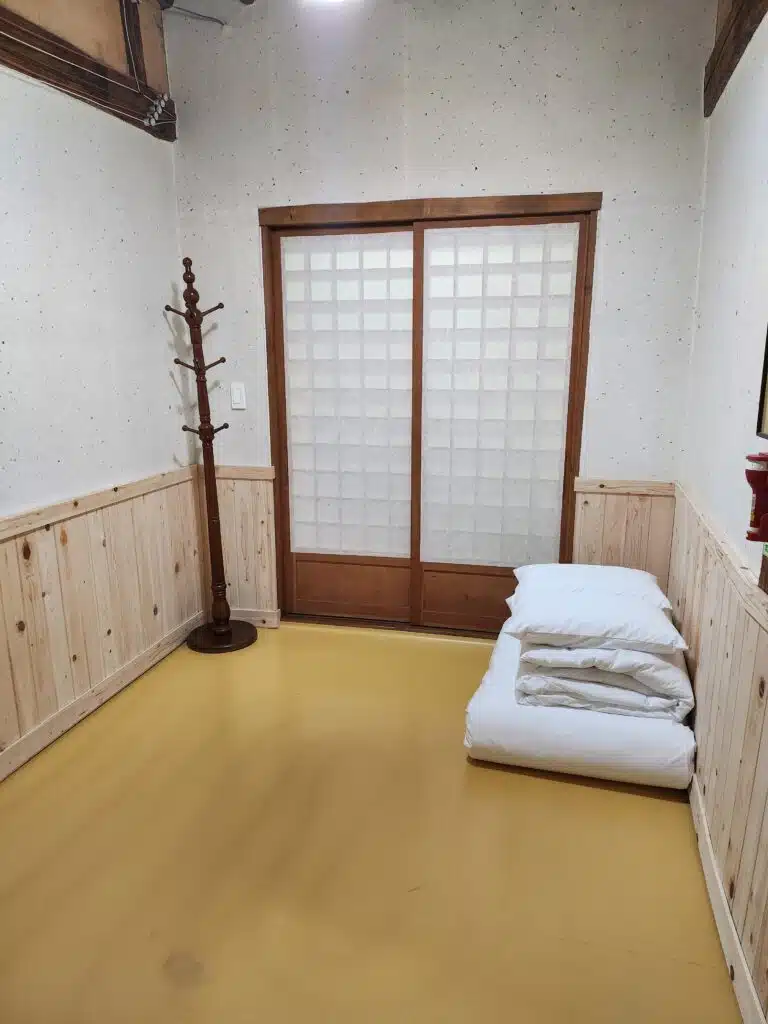
Jeonju Hanbok Experience Hall: Visitors can try on traditional Korean attire (hanbok) and stroll through the Hanok Village, immersing themselves in Joseon-era fashion and ambiance. Wearing hanbok in Jeonju is a popular cultural experience that allows visitors to immerse themselves in traditional Korean attire amidst the historic Hanok Village. Many shops in the village and around Gyeonggijeon Shrine offer hanbok rentals in various styles and colors for both adults and children. Visitors can choose their preferred hanbok, complete with accessories like hair ornaments, and explore the village’s cobblestone streets, traditional houses, and historic landmarks while taking memorable photos. It’s a unique way to connect with Korea’s cultural heritage and feel like part of its rich history for a day.
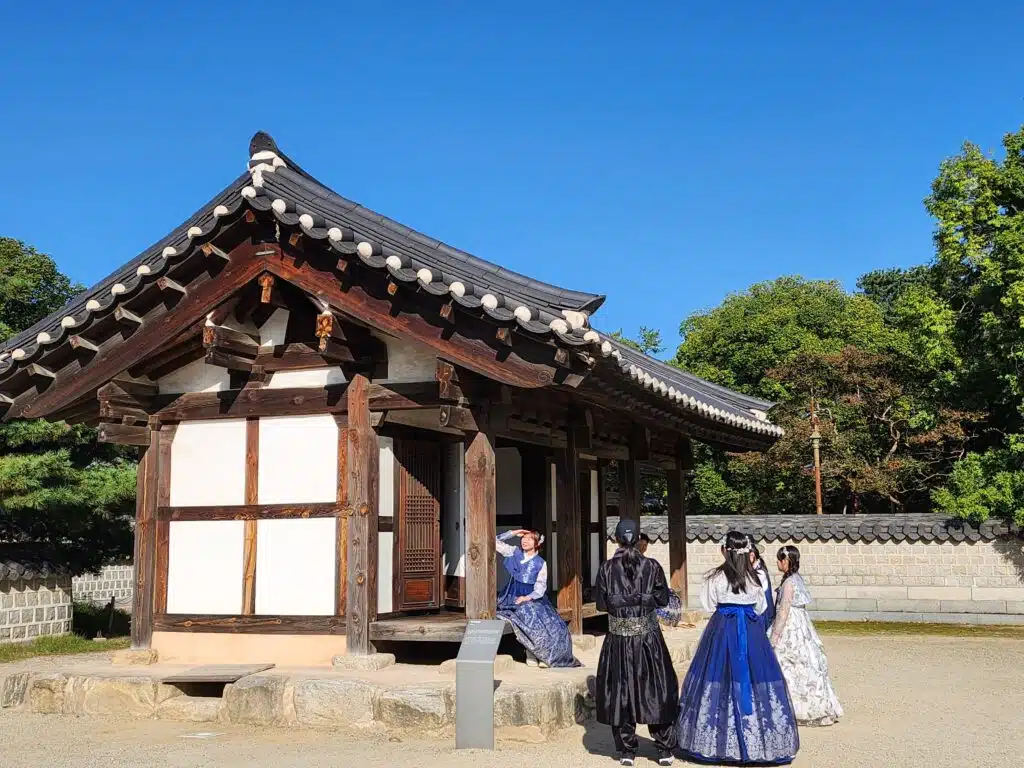
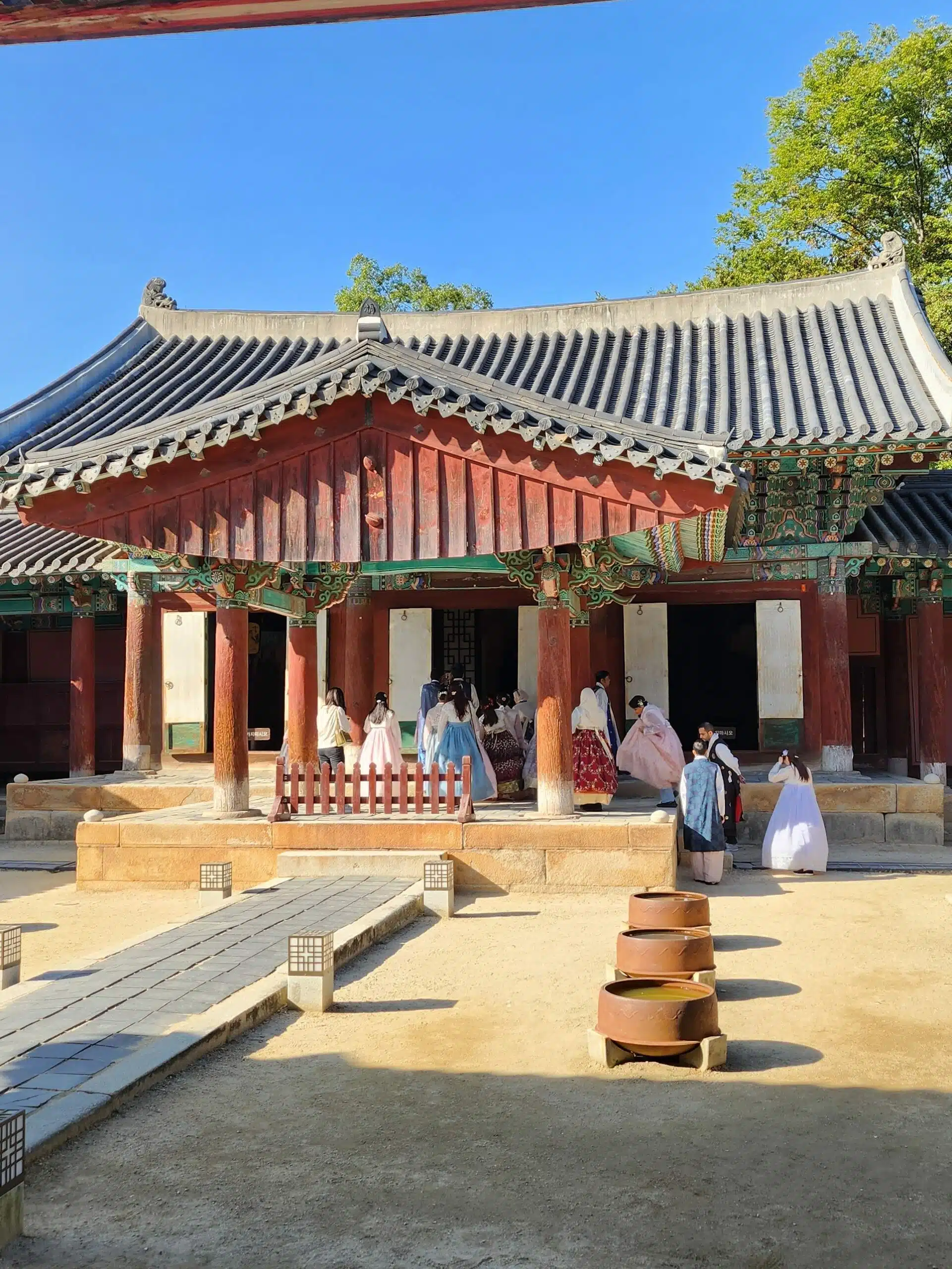
Jeonju Bibimbap: Renowned as the birthplace of bibimbap, a traditional Korean dish of rice topped with various vegetables, meat, and a spicy sauce. Jeonju’s bibimbap is particularly famous for its use of local ingredients and flavors.
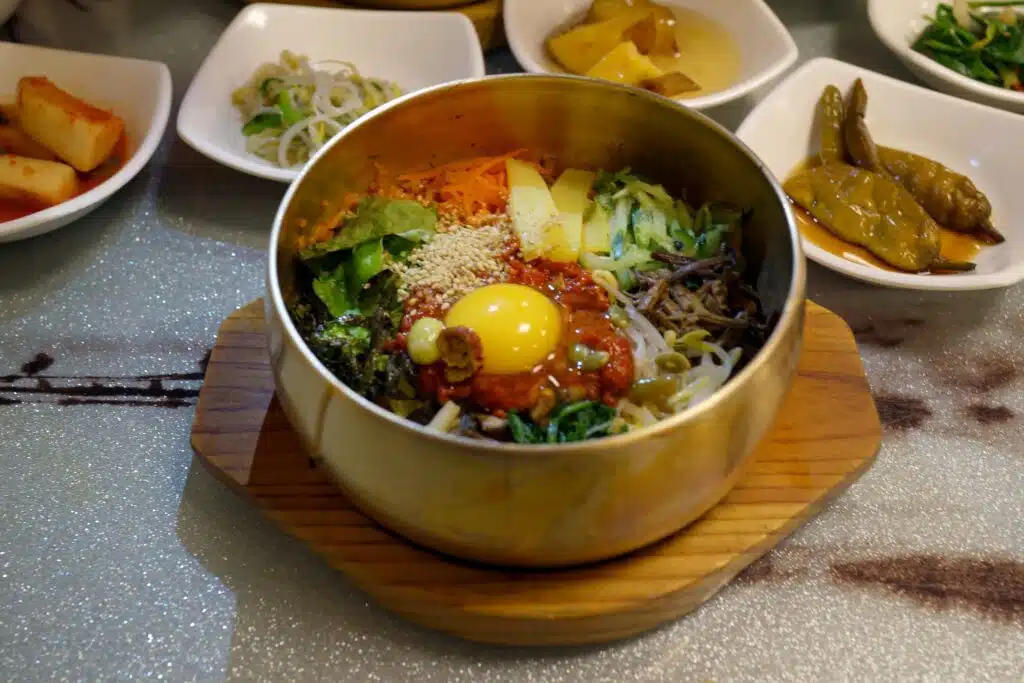
Other attractions :
- Jeonju Hanji Museum: Dedicated to traditional Korean paper (hanji), this museum showcases the art of papermaking and its cultural significance through exhibits and workshops.
- Gyeonggijeon Shrine: A historic shrine housing the portrait of King Taejo, the founder of the Joseon Dynasty, surrounded by beautiful gardens and historic structures.
- Omokdae and Imokdae: Scenic viewpoints offering panoramic views of Jeonju Hanok Village and the surrounding landscapes, ideal for photography and enjoying the city’s traditional architecture.
- Nambu Market: One of Jeonju’s largest traditional markets, offering a wide variety of local produce, street food, handicrafts, and souvenirs. It’s a bustling spot to experience local flavors and everyday life.
Cultural Significance
Jeonju’s cultural significance lies in its preservation of traditional Korean architecture, crafts, and cuisine. The Hanok Village and its surrounding attractions provide a glimpse into Korea’s past while celebrating its vibrant cultural heritage. Visitors to Jeonju can explore historic sites, enjoy traditional performances, and savor authentic Korean dishes, making it a must-visit destination for cultural enthusiasts and food lovers alike

